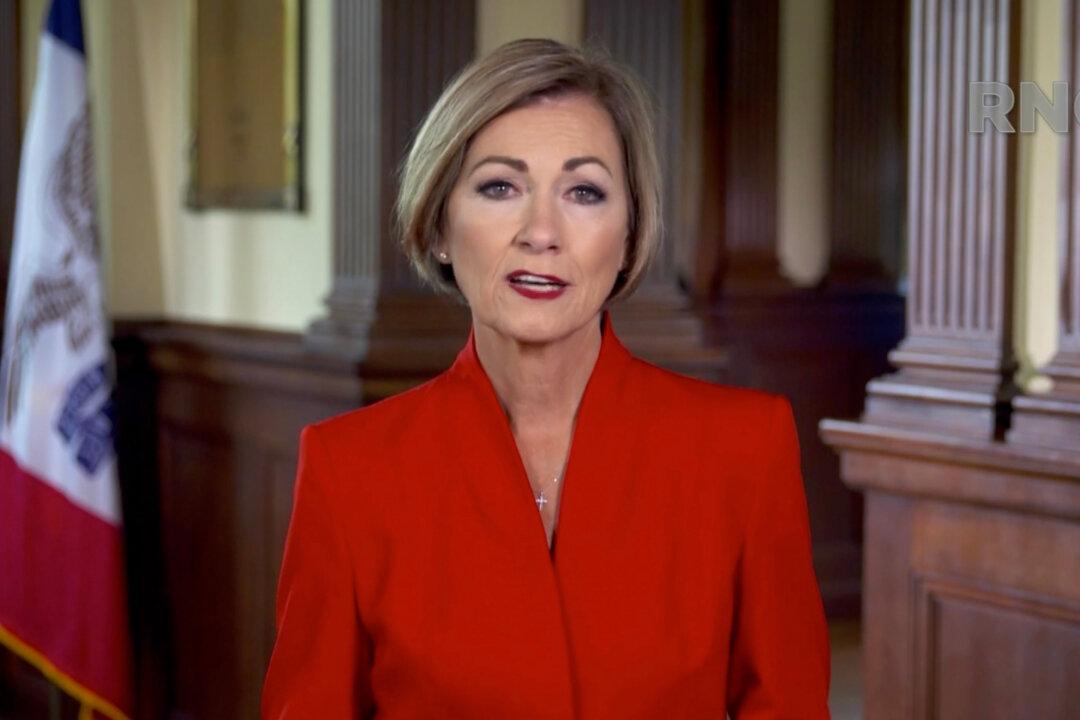Iowa Gov. Kim Reynolds has defended a law that bans books containing “descriptions or visual depictions of a sex act” in school libraries following a lawsuit filed by a group of families to block the new law.
The American Civil Liberties Union (ACLU) of Iowa, Lambda Legal, and Jenner & Block LLP filed a lawsuit on behalf of Iowa Safe Schools, seven Iowa students ranging from fourth to 12th grade, and their families.





